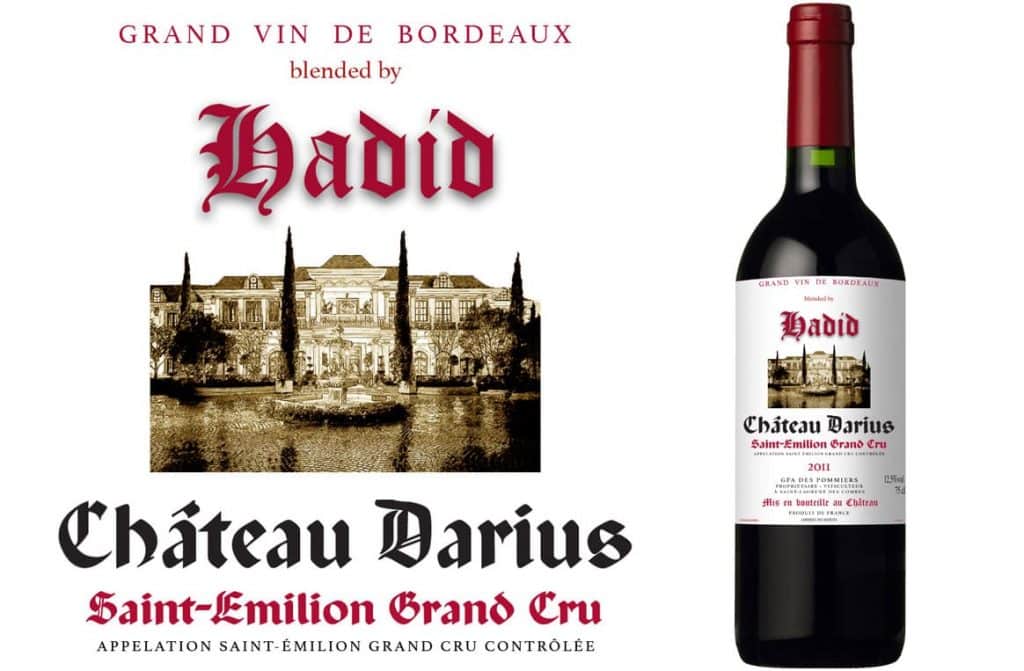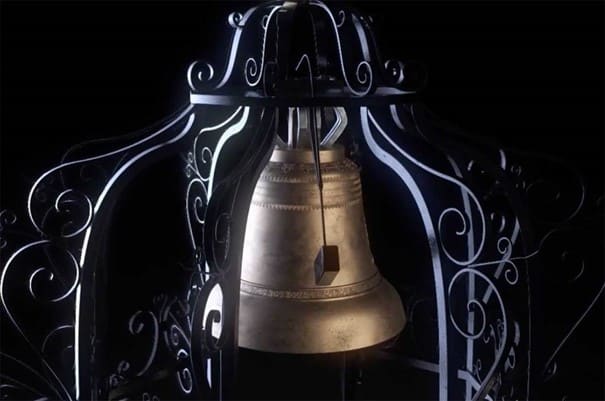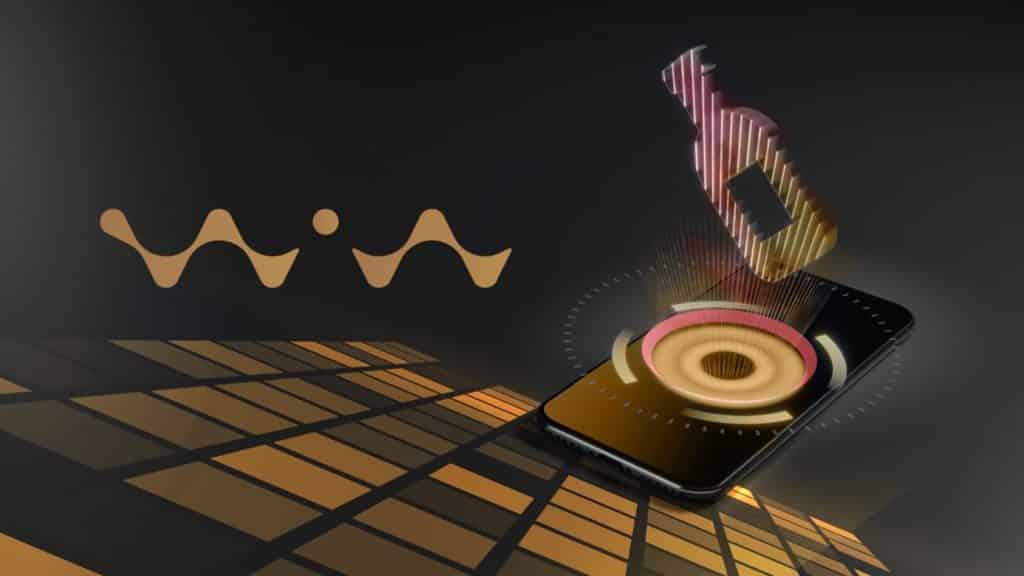Presentation of recent NFT initiatives launched in recent months in the wine market
NFT projects in the wine sector rarely make headlines. However, they are increasingly numerous and extremely varied. Here is a quick description of 6 NFT projects launched between April and July 2021 in this sector.

Yahyn is an online wine delivery service that combines technology with wine selection. In April, the company inaugurated “the world’s first NFT wine allocation”. The founders started from the idea that a buyer of grand cru is certainly a person of taste, but above all a collector. And, it is regrettable that once consumed, the bottle is no longer considered a collector’s item. In fact, Yahyn offers an NFT (for example a virtual image of the bottle or a video of the winemaker’s estate) when buying a grand cru. Thus, the bottle as a collector’s item becomes imperishable.

Also in April, Yao Family Wines, the winery of former basketball star Yao Ming, made history thanks to the NFT. He became the first in the world to offer a wine for auction (his high-end wine The Chop) paired with an NFT digital collectible. The auction took place on OpenSea and involved 200 lots (200 bottles and associated NFT). The NFT represents the n°11 in tribute to the number worn by Yao Ming during his NBA career and the date of inauguration of the vineyard.

Also in April, BitWine created several collectible virtual artworks representing 1000 bottles of famous and iconic wines. These bottles are available for auction on OpenSea.

Since May, Château Darius has also been selling images of its digital wine bottles when its bottles are purchased on the BakerySwap website. Flavien Darius Pommier, the owner of Château Darius in Saint-Émilion, studied finance at Kings College London before returning to look after the family vineyard. He has always had this desire to ” mix the old generation with the new, combining the know-how and knowledge of my grandparents with my knowledge, which is mainly about technologies and social networks “.

In July, another grand cru of Saint-Émilion, Chateau Angélus was distinguished by an NFT initiative. He sold an NFT guaranteeing the ownership of an Angelus barrel 2020 as well as a 3D animated representation of the bell of the Angelus Castle by carefully respecting the engravings inscribed, the actual circumference as well as the sound of the hammer when it falls on the bell. These famous bells of Saint-Émilion are the emblem of the estate.

In July, WiV Technology launched an extremely interesting NFT project. We have also dedicated a part of our NFT News section on this. WiV Technology is a platform that can trace the provenance and transaction history of a real asset through blockchain. The company has partnered with the Georgian government to tokenize wines and whiskies designed within the country. This partnership allows wineries to guarantee the authenticity of their bottles.

The various possible and advantageous uses of NFTs in the wine market
Taking a step back and taking a business perspective, it is possible to distinguish five ways in which NFTs can lead to increased revenue for winemakers and improved customer experience.

- Turn every purchase into an imperishable collector’s item
Obviously, because of their uniqueness, NFTs are often used as virtual collectibles. This is how startups like Sorare are gradually replacing traditional trading cards and virtual works of art are selling for gold. Wine bottles are also collectibles. This is also one of the reasons that justify the exorbitant prices of certain grands crus. However, once consumed, the bottle loses this status. Thus, NFTs can then be the way to make it last forever.
- Guarantee traceability of bottles
The traceability of NFTs is another extremely advantageous feature for the wine market. Indeed, like the pharmaceutical sector, counterfeiting is one of the main scourges facing the wine sector. Wine counterfeiters easily make a fortune (like the famous Rudy Kurniawan) and are rarely unmasked. It is estimated that counterfeit bottles account for just over 20% of the international wine trade and half in China ! NFTs are certainly one of the best ways to eradicate this problem. Solving this problem will inevitably lead to an increase in sales for producers, directly (by no longer confusing fake bottles difficult to discern for a simple oenophile) and indirectly (by no longer fearing to be swindled).
- Strengthen brand image
For any bottle of wine, the brand is the guarantee of its reputation and quality. It is therefore essential for each vineyard to work on its image, reputation and positioning. When you buy a bottle of wine, you buy the brand (a place, a story…). NFTs are a way to improve the marketing of a vineyard. NFTs being a recent innovation and still not widespread in the sector, this makes it possible to gain differentiation. In addition, being particularly fashionable, it also makes people talk in the press. But, above all, NFTs make it possible to strengthen the brand image, improve storytelling. Like Chateau Angélus or Yao Family Wines, a wine brand can make an NFT highlighting its emblem, its estate or its history. Beyond the work of art, such an NFT allows the consumer to enter the universe of the brand and have an emotional connection with the domain.
- Target a wider customer base
According to Stéphanie de Boüard-Rivoal, co-owner of Chateau Angélus, ” Offering our wines through an NFT is an opportunity for us to get closer to new market players and explore new consumption habits “. Indeed, according to Flavien Darius Pommier, the owner of Château Darius, ” NFTs are a way for wine to appeal to young consumers and modernize the business approach of winemakers, while preserving elegance, prestige and international reputation “. According to Tommy Nordam Jensen, founder of WiV Technology, ” the main advantage of NFTs is their ability to attract non-traditional customers from anywhere in the world.”
- Access upstream and disintermediated financing
Another aspect of NFTs, less intuitive, but potentially very interesting, is upstream financing without going through intermediaries. NFTs guarantee title. Therefore, it is possible to offer at auction a title to a future harvest (in exchange for a part of the potential profits) or to buy in advance the bottle of the next year. For example, in the music sector, the Brazilian startup Opulous is creating a platform where any artist can raise from private individuals the necessary funds for the release of his album (without going through the labels) in exchange for future benefits (such as a part of the profits or a concert place). Thus, in the wine sector, this could allow producers to raise funds to finance their future harvest and partially cover themselves against the weather risk.
NFTs represent unprecedented opportunities for vineyards. NFT initiatives exist, but are still rare in this sector given the incredible potential they represent. Perhaps in 20 years NFTs will become a must in the wine market…


